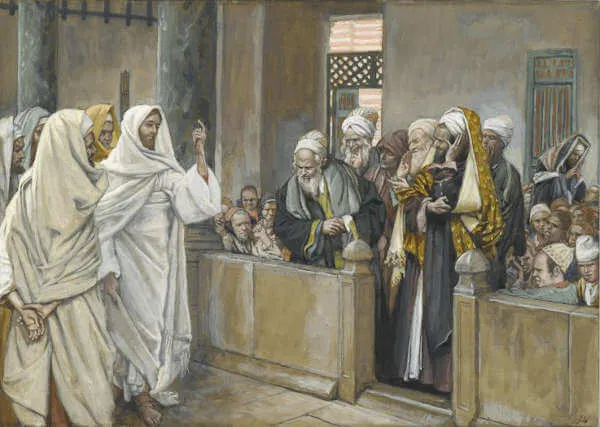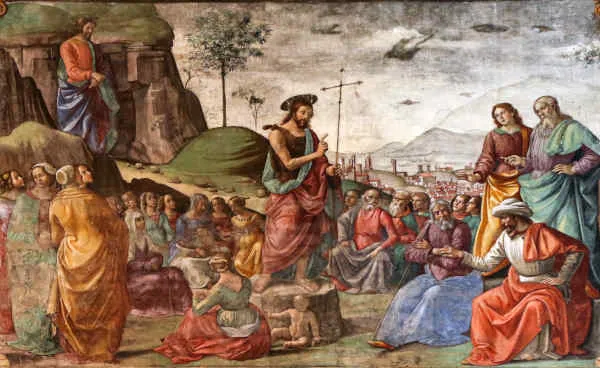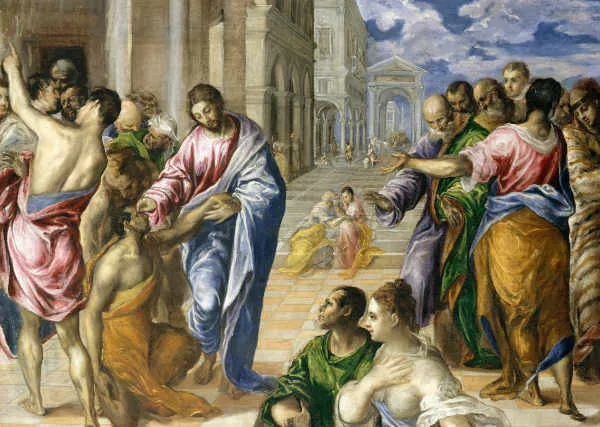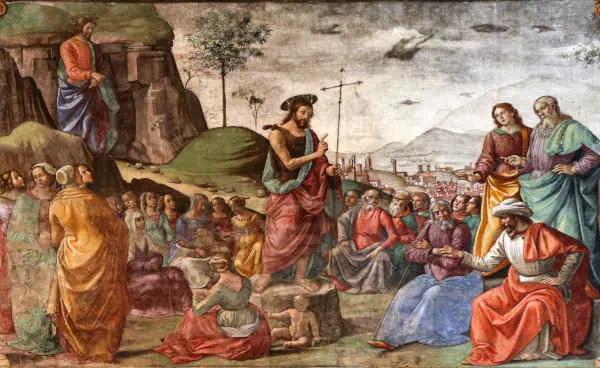Matthew 21:25-27
Religious Politicians
“Where was John’s baptism from? Was it of heavenly or of human origin?” They discussed this among themselves and said, “If we say ‘Of heavenly origin,’ he will say to us, ‘Then why did you not believe him?’ But if we say, ‘Of human origin,’ we fear the crowd, for they all regard John as a prophet.” So they said to Jesus in reply, “We do not know.”
Reflection:
This is a perfect example of how not to live your life. But, sadly, this is too often an illustration of the way many in authority do live their lives. In this Gospel passage, we see the Pharisees acting as what we may term “religious politicians.” A religious politician is one whose religious convictions are decided in a backwards sort of way. Ideally, we will turn our eyes to Christ and all that He has revealed to us. This will produce the glorious gift of authentic faith, and from that rock foundation of faith, we act. But the Pharisees allowed their “convictions” to be based on what they perceived would produce the best outcome at the moment. They chose to say “We do not know” where John’s baptism was from because they thought it was the answer that most safeguarded them from any criticism.
As followers of Christ, we need to be ready and willing to suffer any and all ridicule that comes from living our convictions of faith in an open way. Faith will lead to charity, and charity will always be grounded in the truths of faith. But when we live and proclaim the truth, we will be criticized by some and will suffer as a result.
This Gospel offers us all an invitation to reflect upon the difficult truths of our day and age and to decide whether or not we are willing to publicly profess the truth. Think, especially, about the many moral truths of our faith that seem to be continually under attack. Are you willing to speak your faith clearly, with charity and with conviction, even if it means criticism from the world?
Reflect, today, upon the backwards approach taken by the Pharisees when they were confronted with a difficult question. Make the choice not to follow their example, choosing instead the unwavering convictions that you are called to embrace by your faith. What questions are being asked of you today? In which ways are you being tested by others? What is your approach to those tests? Do you speak more like a “religious politician?” Or do you speak with a clarity flowing from the rock foundation of your faith?
Source: https://catholic-daily-reflections.com/2024/12/15/religious-politicians-2/













